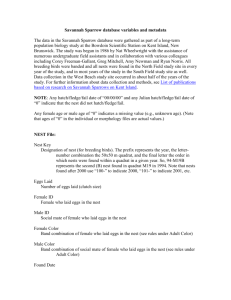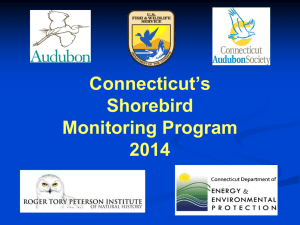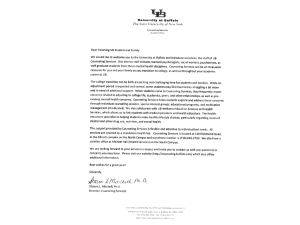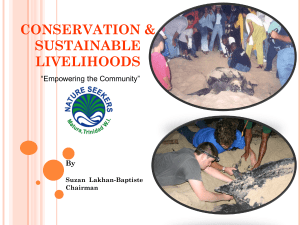HERE - the Sunset Beach Sea Turtle Watch
advertisement
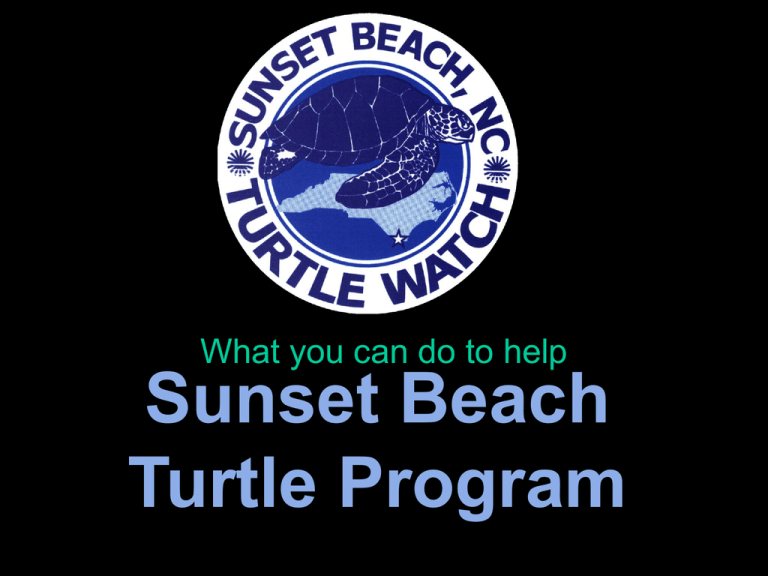
What you can do to help Sunset Beach Turtle Program Who Are We? • The Sunset Beach Turtle Patrol – Volunteers for NC Wildlife Resource Commission: Division of Wildlife – Concerned Citizens – Friends of Nature What do we do? • • • • • • • • Walk beach daily Verify sea turtle nests Place signs and mark off nests Monitor nests during incubation period Observe nest until it hatches Assist directing hatchlings to the sea Report live/dead strandings to the State Perform necropsies when necessary We also…. • Recruit volunteers annually • Provide a new volunteer orientation • Walk beach, educate the public, & monitor nests - May 1 thru August 31 • Provide educational programs to the schools and social groups • Provide fundraising to support our program and the Topsail Sea Turtle Hospital What do we need from you? • • • • Public awareness of sea turtles Education of beach goers Volunteers Solicitation of funds for supplies and education materials. The Sea Turtles The Size Matters THE NEST • Notification – Volunteers patrol the beach daily – Discovered nests are observed daily – Nest/Eggs are located – Identify a “true” nest or “False Crawl” – Area is secured with signs and other identifying materials to protect it Emerging From the Egg The hatchlings have an egg tooth which they use to break the egg to emerge from the egg. 3 to 4 days 3 to 4 days after emerging from the egg turtles make their way up out of the nest and head to the ocean Hatched Eggs 72 Hours after a hatching The nest is inventoried and data reported to the state # of hatched eggs # of infertile eggs # of piped eggs # of dead hatchings Satellite Transmitter Used to track the movements of turtles across the oceans. Location depth, duration of recent dives. Data provides insight into migration and navigation. We’ve incubated for 65 days, hatched and waited for several days in our nest, and now ready to head to the ocean – Our Home Natural Threats (including Humans) • Artificial Lighting (house, bridge, stores, etc.) • Beach and Coastal Development • Boating – Propeller strikes, vessel collisions, jet ski and other recreational activities • Fishing – hooks, gill nets, long line fishing • Marine Debris cause choking, toxic etc. • Pollution – (oil spills) algae bloom, storm water runoff, garbage both on and off the beach • Products made from turtles – Jewelry, hair ornaments – tourism Items and debris left on the beach Look what damage a simple piece of rope can cause… Fishing line and hook stuck inside a turtle Conservation • Management Efforts: – Informing the public – Satellite Telemetry – Tags • Legislative tools – The U.S. Endangered Species Act (ESA) – Archie Carr National Wildlife Refuge – Nesting and nest protection – Involving the public Predators of Sea Turtles • Eggs and hatchlings – Raccoons, sea birds, – Foxes, ants, crabs, – Opossums and coyotes • Juveniles – Sea Birds and Fish • Teenager and Adults – Killer Whales – Variety of sharks • Sharks are a larger problem because they feed both day and night Thank You! Please Support SSBTW Today!

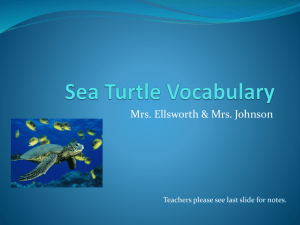

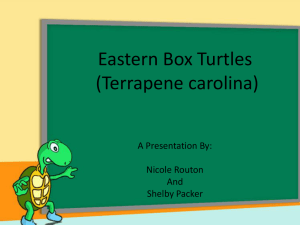
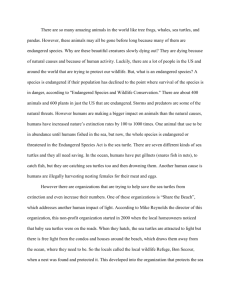

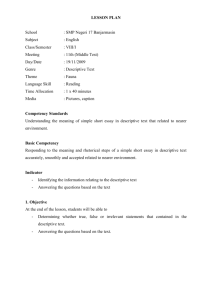
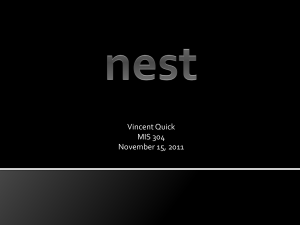
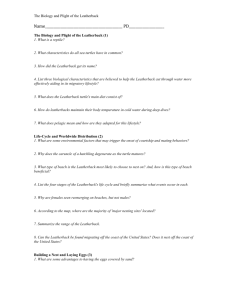
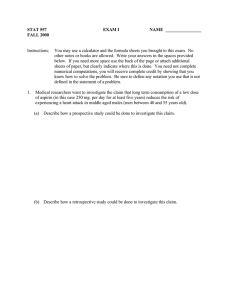
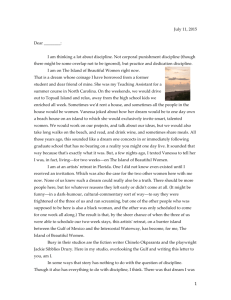
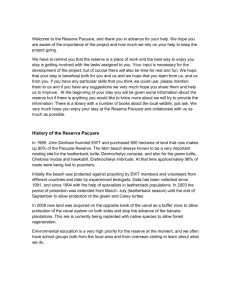


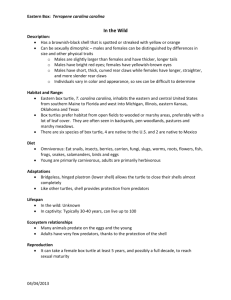
![PERSONAL COMPUTERS CMPE 3 [Class # 20524]](http://s2.studylib.net/store/data/005319327_1-bc28b45eaf5c481cf19c91f412881c12-300x300.png)
